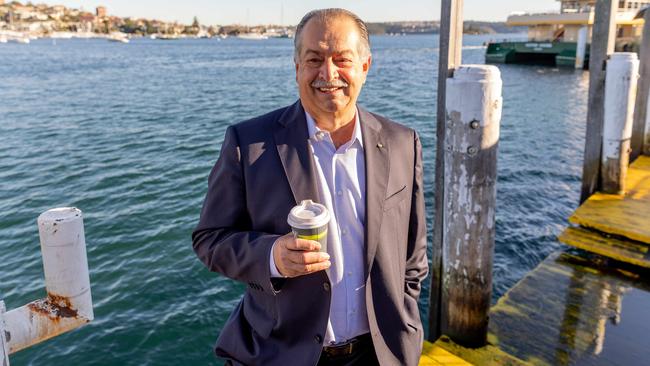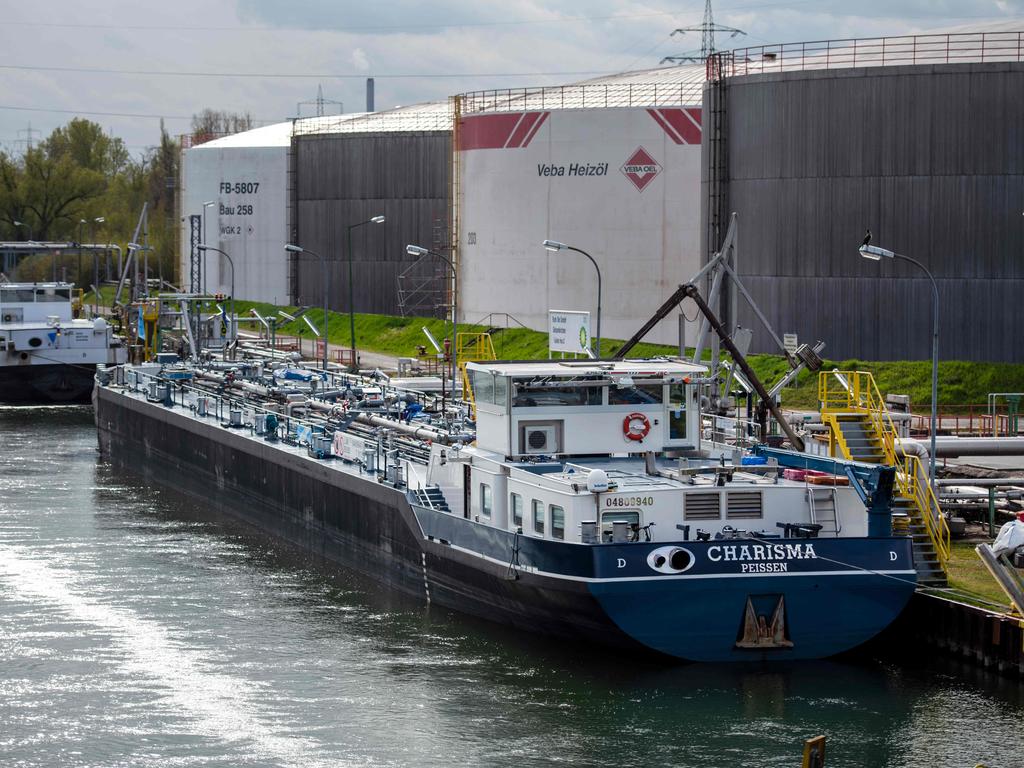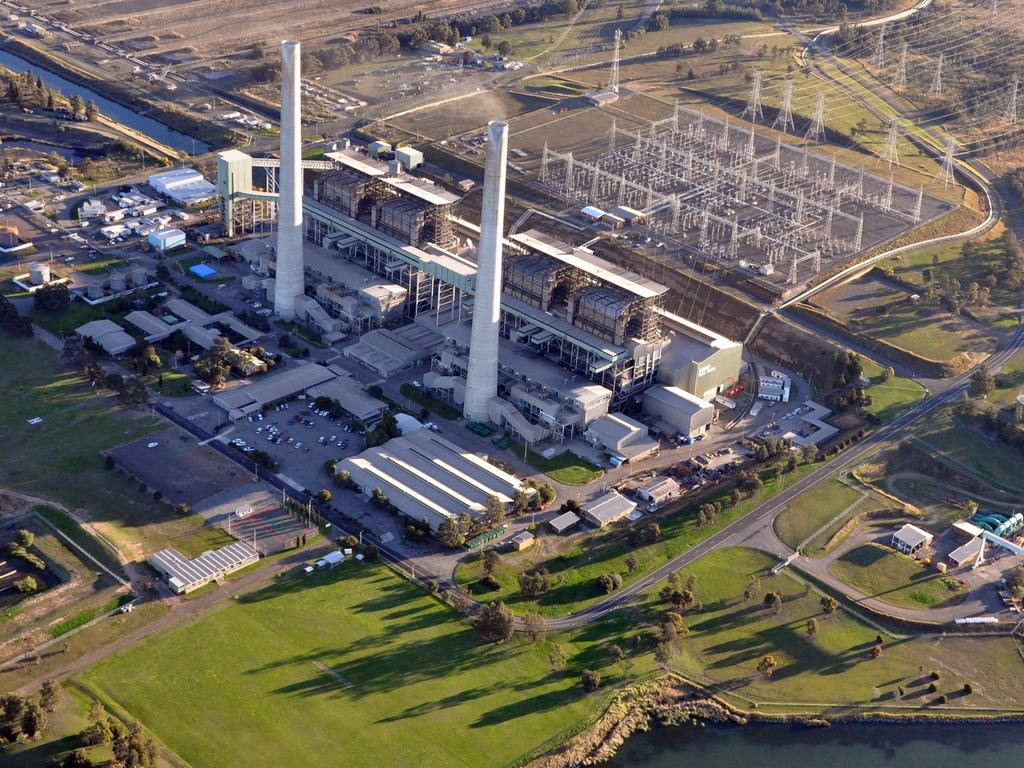Government ‘should breach gas contracts if necessary’, says Andrew Liveris

“I’d start it immediately. Malcolm Turnbull did this. It wasn’t popular at the time but in times of crises, domestically I would put in export controls on the gas guys,” he says. “There will be screaming. The gas guys would hate that but you know what? They make a ton of money because they are exporting low-cost gas and the price is the international oil price. Imagine the margin they are making.”
The point of the gas-fired recovery, says Liveris, was to help insulate the Australian domestic market from international price volatility. Unfortunately, execution of the strategy – including the release of newly permitted gas on land and more pipes – has been at a glacial pace.
Liveris says this has left Australia exposed to the “Dutch disease” where the domestic price is driven by the international price because local supply and demand is not in balance. He insists he has never favoured price setting or subsidies for manufacturers.
However, he believes today’s energy crisis calls for stronger action. Specifically, he wants a domestic reserve of 15 to 20 per cent of gas produced across the east. In Western Australia – which has a longstanding domestic reserve – gas is far cheaper.
“You just do an allocation and cap the amount that you export because this is the problem. We export 95 per cent of our gas,” says Liveris. “I wouldn’t subsidise. I don’t think you have to.
“I’d rather set some export controls, allocate a percentage of the gas domestically, do a reservation scheme and get us through this temporary issue.”
Liveris points to the energy crisis in Europe: no nuclear power in Germany, coal hollowed out and now a Russian squeeze on gas.
“The triple whammy in Europe means that there is no low-cost energy. Energy transition is hardly a transition, it’s a chasm. What we have to avoid here is that same chasm,” he says.
Liveris would not specify how long a temporary intervention might be, given ongoing volatility. “This is the current crisis but we will have another one and another one. We need a sustained, just transition that we manage affordably which is why gas has a role.”
The call for a temporary intervention by Liveris, the former head of chemical manufacturing giant Dow, will come as no surprise to oil and gas companies including Chevron, Shell, British Gas, Woodside and Santos, which have contracted to send the majority of Australia’s gas supply overseas.
That said, the global energy crisis has led governments around the world to walk the talk on market intervention. In the US last week, the White House refused to rule out a ban on fuel exports, something the Chevron chief said would be unwise. And in Britain the government has imposed a windfall profits tax on the oil and gas sector.
Intervention is one option for the Albanese government, which looks to be in a deep quandary. After winning the election with a strong climate agenda, it finds the importance of gas suddenly evident – including how quickly and easily it can be switched on and off to provide power to the grid.
Unfortunately Labor’s enthusiasm to disparage the Coalition record at every turn means it has ruined the power of the legislated Australian Domestic Gas Security Mechanism.
It was not intervention, but the threat of using the ADGSM that was so effective under ministers like Matt Canavan and Angus Taylor. Yet by writing off the ADGSM as a useless tool that could not be used immediately and would require further legislation to extend, Labor has made it impotent.
Asked at a press conference on Thursday why the government could not immediately force gas exporters to break contracts and divert gas domestically, Chris Bowen replied there was a bit of sovereign risk at stake.
Too right, there is sovereign risk. Santos chief executive Kevin Gallagher, having just returned from Japan and South Korea, said what was most striking was the level of concern about energy security. These countries were looking for 30 years of continuous gas supply from Australia. These are also two international markets where Australia could source some of the billions of dollars of investment needed for hydrogen development and the huge build-out of the electricity transmission network to connect renewable energy zones up to the grid.
Under its Powering Australia policy, Labor plans for $58bn in private sector investment in the transition. Labor knows the risk to investment – which is why it is resisting, for the moment at least, calls to intervene in the market.
Liveris acknowledges that intervening could trigger a force majeure in export contracts and penalties might need to be paid. “We have always been afraid if we do a government-mandated intervention that the IOCs (international oil companies) will say Australia is a risky place to invest,” he says. “That is a downside and yes, maybe there is some compensation through international arbitration. I want us to be the country that we are, a AAA, very low risk country to invest in, so it is unfortunately going to be a little bit of a black eye,” he adds.
Many myths need busting in the gas market.
Big gas is making big money, but only on uncontracted gas for example. New Nationals leader David Littleproud artfully describes the gas companies as riding high in the stirrups and able to see where easier gas is accessible. Liveris notes the ‘‘use it or lose it’’ provisions around the gas reserves in the Beetaloo, Bown and Surat Basins, in the Northern Territory and Queensland.
There are other responses to the crisis. EnergyQuest’s Graeme Bethune describes it as more of an electricity crisis than a gas crisis, with a cold snap occurring just as coal-fired power hits operational outages.
On Wednesday the government will meet with state leaders to discuss support for the coal sector and fast-tracking approvals needed for new gas.
It will be the first test of whether federal Labor can work co-operatively with Labor premiers to deliver outcomes.
The federal election result signalled a widespread belief that energy transition needs to be accelerated, even if that results in higher prices or less reliability. But the latest gas crisis could reset the decarbonisation agenda with a little less naivety, an agenda that weighs energy security and social equity in the mix.
On Wednesday at the Credit Suisse annual energy conference, Grok Ventures chief executive Jeremy Kwong-Law, independent Wentworth MP Allegra Spender and Australian Workers’ Union Secretary Dan Walton will hammer out their ideas for a solution to the crisis, short and long term.
“Every government around the world right now is looking at Europe, at inflation, interest rates, and the great resignations and lack of labour and governments are going to have to get more hands-on,” says Liveris.
“The idea of a domestic gas market – maybe a crisis is the way we get there.”




Andrew Liveris, the man chosen by Scott Morrison to direct a gas-led recovery during the Covid-19 pandemic, says the new government should intervene in the gas market to deal with the energy crisis – even if it means breaching international contracts.